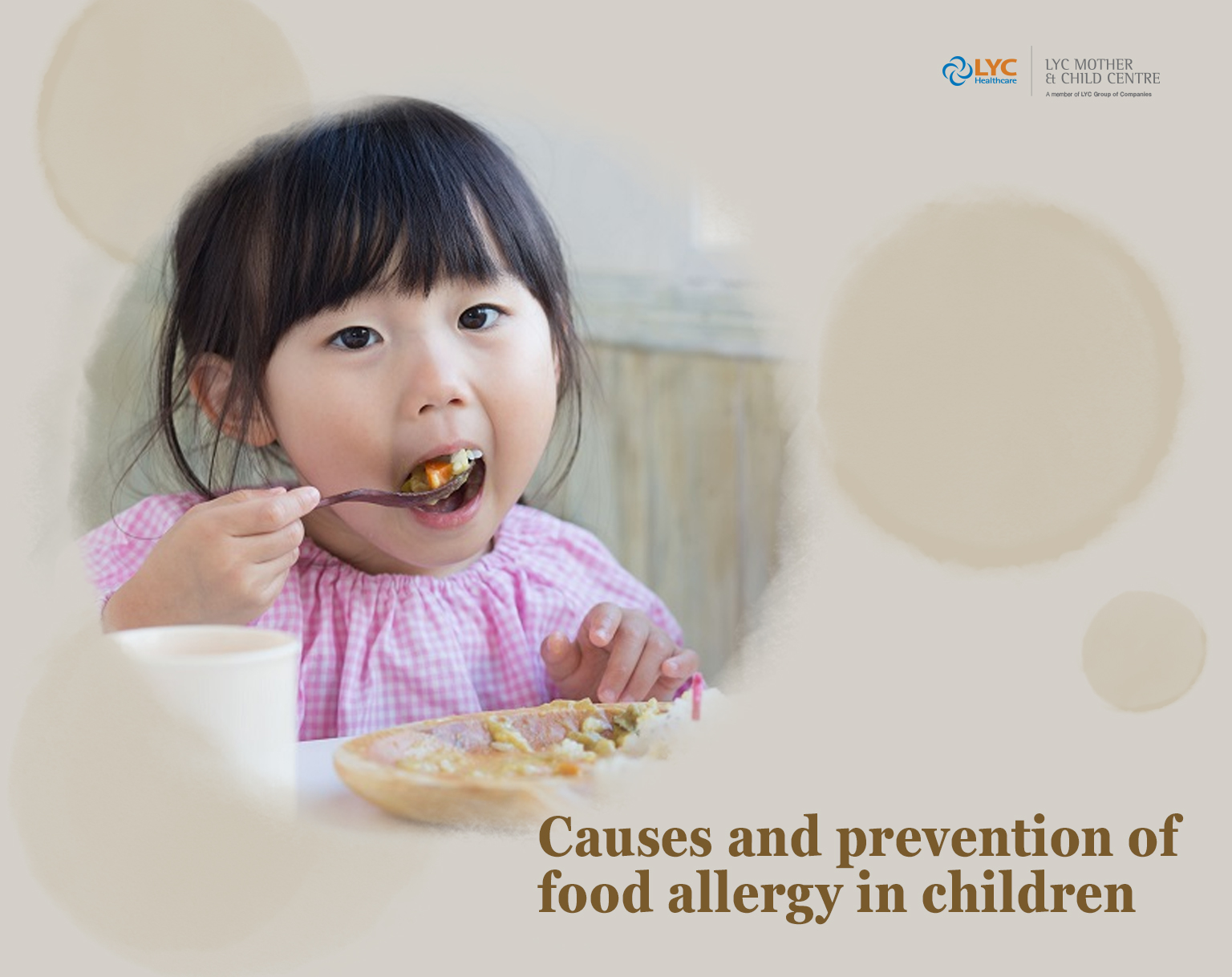Causes and prevention of food allergy in children

Food allergy in children is one of the common health problems in children, which is caused when the child's immune system reacts abnormally to certain food ingredients. Food allergies can cause mild symptoms such as itchy skin and vomiting, to severe reactions such as breathing difficulties and anaphylactic shock, hence it is important to prevent food allergies in children.
Causes of food allergies in children
All children have bacteria in their mouths and are at risk of tooth decay, but the following may increase the risk of tooth decay:
- Foods: Certain foods can trigger an abnormal reaction in a child's immune system, such as milk, eggs, peanuts, tree nuts, fish, and shellfish.
- Genetic factors: A child's genetics may affect their risk of developing allergies to certain foods.
- Development of the immune system: Children's immune system has yet to fully develop, so they are more likely to develop allergies to certain foods.
- Environmental factors: Certain environmental factors may increase a child's risk of developing a food allergy to certain foods, such as air pollution and exposure to chemicals.
Which foods most commonly cause food allergies?
About 90% of food allergies are caused by the following 8 foods:
- Milk
- Egg
- Wheat
- Soybean
- Nut
- Peanut
- Fish
- Shellfish
Eggs, milk, and peanuts are the most common causes of food allergies in children, along with wheat, soy, and tree nuts. Peanuts, tree nuts, fish and shellfish usually cause the worst reactions. While most children outgrow allergies, allergies to peanuts, tree nuts, fish, and shellfish can last a lifetime.
What are the symptoms of a food allergy?
Allergy symptoms can appear within a few minutes to an hour after ingesting the food. Each child may have different symptoms. The following are the most common symptoms of food allergies:
- Vomit
- Diarrhoea
- Cramps
- Hives
- Swelling
- Eczema
- Itching Or Swelling Of The Lips, Tongue, Or Mouth
- Itching Or Tightness In The Throat
- Difficulty Breathing
- Wheezing
- Lowered Blood Pressure
How to Prevent Food Allergies in Children
- Pay attention to the diet of infants and young children: breastfeeding is the best choice, try to delay the time of adding complementary foods to reduce your child's exposure to foods that may cause allergies.
- Gradually add new food: Gradually add new food, and observe your child's reaction, if there is any discomfort, they should stop eating immediately.
- Food safety: avoid expired food, unclean food, and cross-contamination.
- Pay close attention to allergy symptoms: If your child has had allergy symptoms, take your child to the hospital for regular check-ups, and prepare emergency rescue medications, such as epinephrine auto-injectors.
